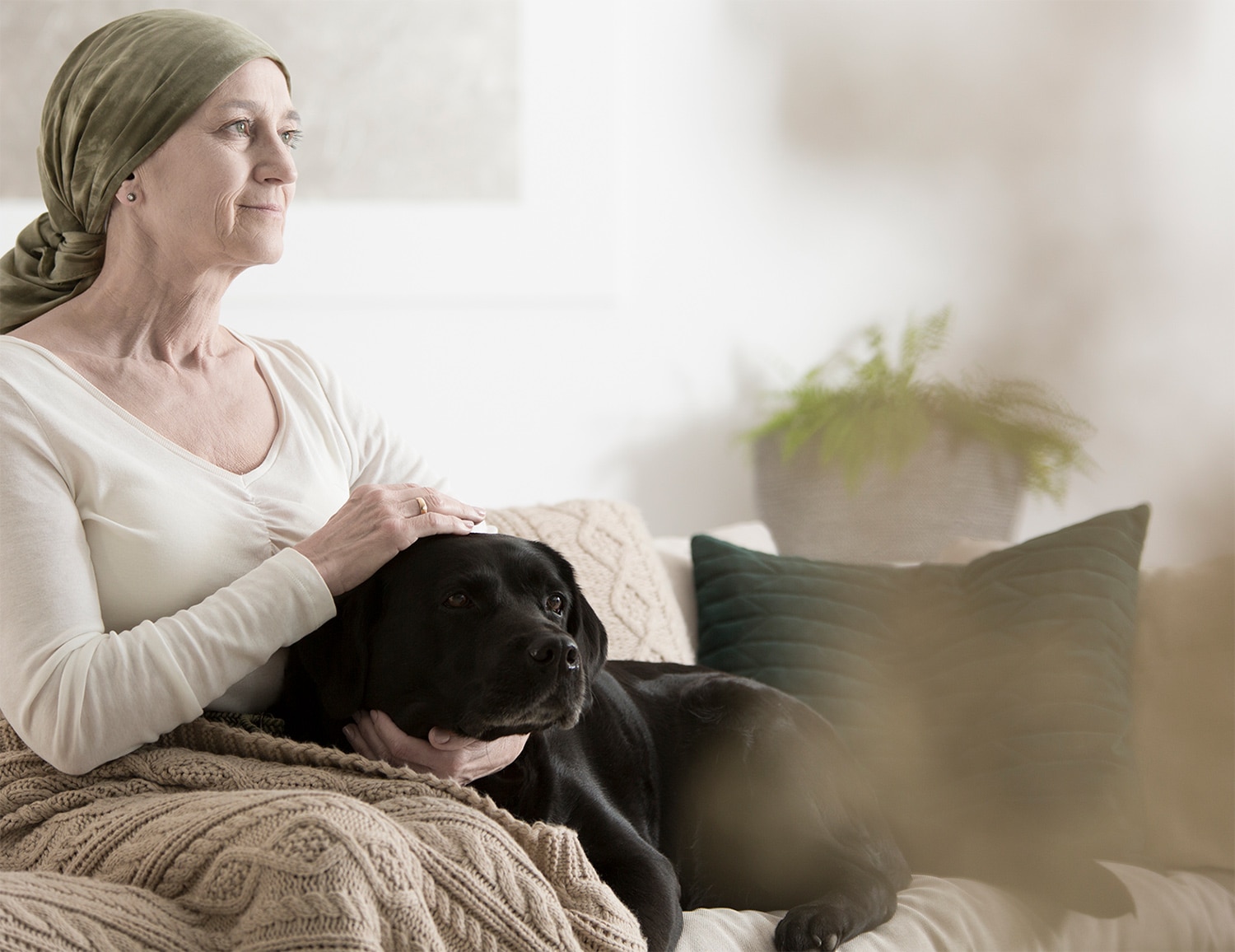Patients and Survivors Share Tips for Coping
“As the U.S. grapples with a potentially deadly pandemic, it can learn a lot from people like me who are living with serious illness,” writes Adam Hayden, who was diagnosed with glioblastoma four years ago, in STAT. For instance, cancer patients are used to sorting through information and misinformation and making connections with the clinical and research community to discern what advice is evidence-based. And the cancer community is already adept at connecting virtually. Many cancer patients have also already had to deal with taking measures to protect themselves from infectious agents due to being immunocompromised, writes breast cancer survivor Diane Mapes of the Fred Hutchinson Cancer Research Center. And patients have experience with coping with bad news. Mapes offers advice on being prepared but not panicky, learning to live with uncertainty, finding connection with others and embracing empathy. Meanwhile, Jere Downs writes in the Philadelphia Inquirer about the period of isolation she and her son experienced when he was being treated for leukemia as a child. She recently told her now 19-year-old son, “We’ve done this before. You know what to do.” He answered, “Yep, mom. Now everybody is like us.”
More Data on COVID-19 and Cancer
Researchers reviewed the records of 1,524 cancer patients admitted to the Department of Radiation and Medical Oncology at the Zhongnan Hospital of Wuhan University in Wuhan, China, between Dec. 30 and Feb. 17, finding that there was a higher rate of infections with the coronavirus in this group of patients than in the general population of Wuhan. In a paper published March 25 in JAMA Oncology, the researchers write that they found an infection rate of 0.79% in their cancer patients, compared to a rate of 0.37% in Wuhan overall. The researchers say that patients who are over age 60 or have non-small cell lung cancer appear to be at increased risk. “There seems to be a specific linkage between lung cancer patients and COVID-19 risk, thus, extra precautions ought to be taken for these patients,” study co-author Melvin L. K. Chua told Cancer Therapy Advisor. Currently, doctors in the U.S. are taking measures to keep patients away as much as possible from locations where they could get infected. In order to get improved data on COVID-19 in cancer patients in the U.S., health care providers have formed the COVID-19 and Cancer Consortium, which is working to collect data on COVID-19 cases and outcomes.
Changes to Cancer Treatment Continue
The coronavirus pandemic is leading to changes in cancer care and how it is delivered. Cancer centers continue to postpone routine follow-up and other noncritical visits, or they transition to telemedicine or phone calls. Some cancer surgeries continue to be rescheduled, and some other treatments, including chemotherapy and stem cell transplants in some cases, are being delayed. Radiation oncologists are discussing, meanwhile, when it might be appropriate to shorten or omit radiation therapy or switch to a shorter schedule of more intense therapy. Christine Lee, interim director of Swedish Cancer Institute’s Breast Program in Seattle, explained to KUOW that, while cancer often feels like an emergency situation, treatments vary in their time sensitivity depending on individual patients’ situations. In an article published in ASCO Daily News, oncologist Merry Jennifer Markham from the University of Florida in Gainesville writes that patients and oncologists must have individual discussions of risks. “Patients with cancer may be at higher risk for complications from COVID-19, either due to their malignancy or the treatment,” Markham says. “However, these patients are also at risk of increased morbidity and mortality from their cancer, so the risks of treatment versus delaying treatment must be thoughtfully and carefully considered.”
Clinical Trials in a Time of Social Distancing
As Americans stay home due to concerns over the COVID-19, people with cancer who are participating in or awaiting enrollment in clinical trials face continued questions. In an article published March 25 in Nature, lung cancer researcher and medical oncologist Roy Herbst of Yale Cancer Center in New Haven, Connecticut, describes how the coronavirus is impeding the ability of hospitals to run clinical trials. Stressing that social distancing is necessary to protect cancer patients from infection, Herbst says, “the whole process has really ground to a halt, and I feel bad because there are patients who might have benefited from those trials.” Patients also have to decide whether it’s worth the risk to continue, even when a trial is still offered through their hospital. One March 25 article published by ABC 10 News San Diego describes how a stage IV prostate cancer survivor decided to postpone treatment because of concerns about traveling to San Diego from his home in Oregon to participate in an immunotherapy clinical trial. “If I can get through this crisis—maybe miss some of my therapy—maybe I let the tiger a little out of the cage a little bit on the cancer thing,” the patient said. “I feel like I could maybe reel that guy back in, but if I die of COVID-19, it’s over.”
Cancer Today magazine is free to cancer patients, survivors and caregivers who live in the U.S. Subscribe here to receive four issues per year.





